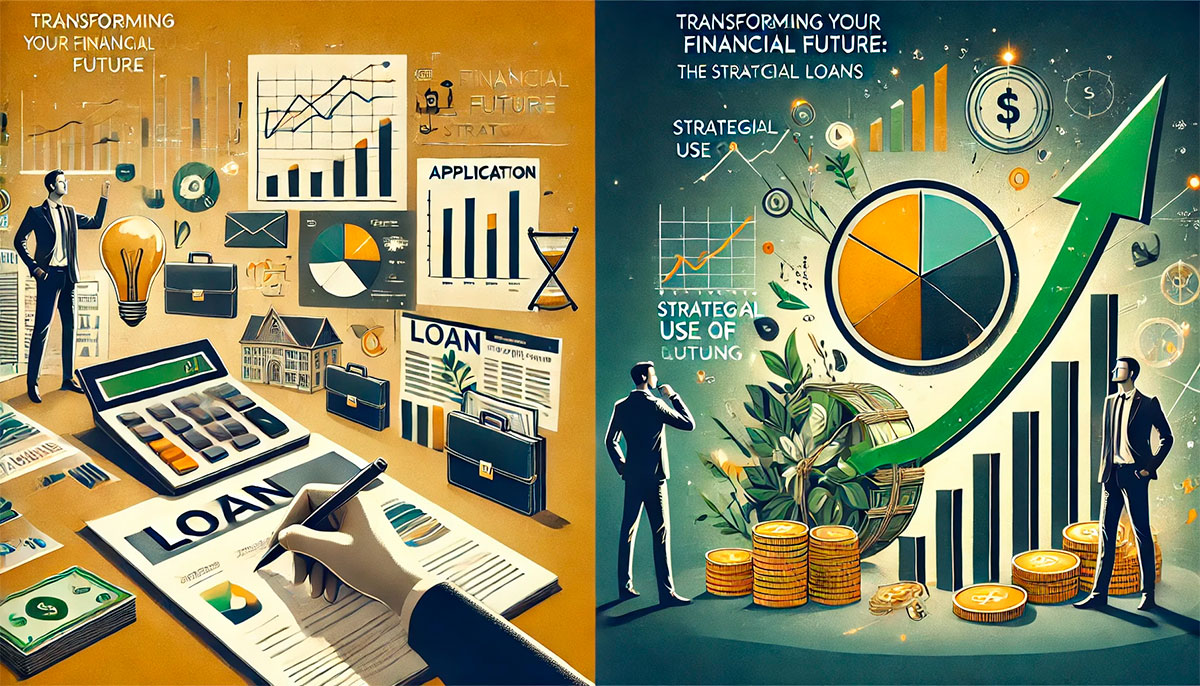Loans are often seen as financial burdens, but when used wisely, they can become powerful tools for improving your financial situation. From consolidating debt to funding education or business ventures, loans offer a way to access capital that can help you achieve personal and financial growth. In this guide, we’ll explore the various ways loans can positively impact your financial situation and help you build long-term stability.
Improving Your Credit Score
One of the most significant advantages of taking out a loan is the potential to improve your credit score. By making timely payments on a loan, you demonstrate financial responsibility to lenders. Over time, this can increase your credit score, making it easier to qualify for better loan terms in the future. A higher credit score also opens the door to lower interest rates, which can save you money when borrowing.
Credit improvement is especially beneficial for individuals with a limited or poor credit history. By responsibly managing a loan, you can establish or rebuild your credit profile, positioning yourself for better financial opportunities in the long run.
Investing in Education and Skill Development
Education loans are a common example of how borrowing can lead to long-term financial benefits. Whether you’re attending college or taking professional courses, investing in your education can significantly boost your earning potential. A higher salary allows you to pay off loans more quickly and save for future financial goals.
While student debt can be daunting, the skills and knowledge you gain from education often result in better job opportunities and increased income, making it a worthwhile investment.
Business Expansion and Investment
For entrepreneurs and business owners, loans can be essential for business expansion. Whether you need to purchase equipment, hire staff, or launch a new product line, loans provide the capital required to scale your operations. When used strategically, business loans can result in higher profits and long-term growth.
Taking out a loan for business investment allows you to capitalize on market opportunities that you might otherwise miss due to a lack of immediate funds. As long as the return on investment exceeds the loan’s interest rate, borrowing can accelerate business success.

Purchasing Real Estate
Real estate is one of the most valuable assets a person can own. For most people, buying a home requires taking out a mortgage. This type of loan not only provides a place to live but also offers the opportunity for the property to appreciate in value over time. Homeownership can also offer tax benefits, making it an attractive financial decision.
In addition to providing housing, real estate can generate income through renting or selling at a higher price in the future. By making mortgage payments on time, you build equity in your home, which is a key factor in building long-term wealth.
Debt Consolidation
Debt consolidation loans can simplify your financial life by combining multiple high-interest debts into one manageable payment. Instead of juggling several credit card balances or other loans, you can pay off all your debt with a single loan at a lower interest rate. This can save you money on interest and make it easier to manage your monthly payments.
Debt consolidation is especially useful if you have high-interest debts that are eating away at your budget. By consolidating and lowering the interest, you free up more money to use toward other financial goals.
Handling Emergencies
Life is full of unexpected events, such as medical emergencies or urgent home repairs. Loans can provide quick access to funds that help you manage these situations without draining your savings. Short-term loans or personal loans can be lifesavers during emergencies, ensuring that you can cover necessary expenses while maintaining financial stability.
Although emergency loans should be used sparingly, they can offer peace of mind when life throws you a financial curveball.
Financing Major Purchases
Large purchases, such as cars, appliances, or vacations, can be financially burdensome if paid for all at once. Loans can spread out the cost over time, making these purchases more affordable. For example, auto loans often come with lower interest rates compared to credit cards, allowing you to finance a car without overstretching your budget.
Taking out a loan for a major purchase can help maintain your financial balance and avoid dipping into long-term savings or emergency funds.
Investing in Yourself
Personal loans offer the flexibility to invest in self-improvement, whether that’s starting a side business, renovating your home, or attending a personal development course. When used for personal growth, loans can lead to higher earnings, better job opportunities, or increased property value.
Investing in yourself can yield financial returns that make the loan worthwhile, positioning you for long-term success.
Conclusion
When used responsibly, loans can be a catalyst for financial improvement. From boosting your credit score to investing in education, real estate, or business growth, loans provide the financial support needed to achieve your goals. The key is to use loans strategically, ensuring that the benefits outweigh the costs and that you have a clear repayment plan. By leveraging loans wisely, you can enhance your financial situation and create a foundation for future success.


